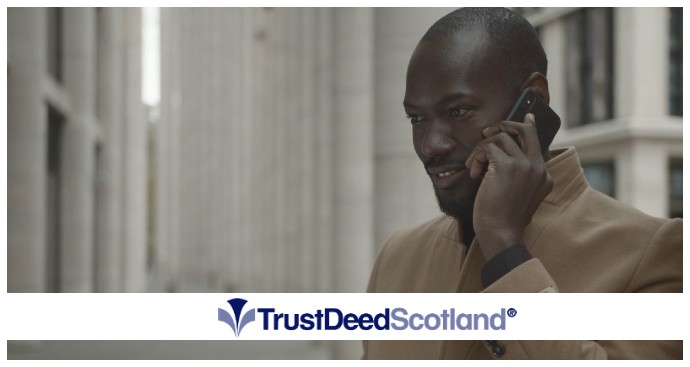The short answer is Yes. Yes, you can get a Trust Deed If you’re self-employed.
As a sole trader you can enter into a Scottish Trust Deed. It is a legally binding agreement to pay back creditors over a set period of time, typically 4 years. This can be monthly instalments, a lump sum payment, or a combination of both and this is set up by an Insolvency Practitioner.
If you are in a business partnership, the partnership can include partnership debts in the Trust Deed.
It is normal for each individual in the partnership to setup the Trust Deed at the same time. This is due to partners becoming personally liable for partnership debts. Setting up an individual Trust Deed at the same time ensures that these debts are also dealt with and creditors cannot take any further action against individual partners.
Learn more about your options in our small business debt help guide.
Whether you’re a sole trader, limited company or partnership; the Small Business Debt Help provided by Trust Deed Scotland® is aimed at former trading businesses and current trading businesses.
Our solutions included Self Employed Trust Deeds and the Business Debt Arrangement Scheme.
The Business Debt Arrangement Scheme is an alternative to a Trust Deed, and like a Trust Deed gives you legal protection from your creditors but does give you time to repay what you owe.
This debt solution option is open to sole traders and partnerships. However, it’s not available for limited companies.
While some of your debt can be written off with Trust Deeds, this is not possible with a Business Debt Arrangement Scheme; but does allow you to freeze interest and charges.
Will My Business Assets Be Sold?
If you’re self-employed, your tools of the trade are unlikely to be at risk.
If you own a small limited company, you should be able to keep your shares in the company – However, you should seek debt advice first, in order to establish the facts.
Can I Continue Trading With A Trust Deed?
Yes, you can continue to trade while repaying your Trust Deed. Business and personal debts can be included and you would normally be able to carry on trading. However, it could mean that you have to include business and personal assets in your Trust Deed, or Business Debt Arrangement Scheme.
You can carry on trading if your partnership enters into a trust deed. However, it could mean that you have to sell some business assets to pay off your creditors.
You might also find it difficult to get credit facilities and business banking. This is because the Trust Deed would be recorded on your credit reference file and the Register of Insolvencies for a period of 72 months.
Can I Include HMRC Debts?
Yes, any qualifying debt gets included in the Trust Deed, or Debt Arrangement Scheme. However, you should get advice from a qualified advisor to review your circumstances and to provide a personalised illustration based on your situation.
Can I Still Be A Company Director?
A Protected Trust Deed itself does not prevent you being a company director.
The company itself may have rules on this. These rules are recorded in the company’s Articles of Association. The organisation may prevent an insolvent person from serving as a director. However, this may not always be the case.
If it’s your own company, it’s possible to change the rules to remedy this issue. An Insolvency Practitioner can help give you advice on this.
Where Can I Get Self Employed Debt Advice?
You can get Self Employed Debt Advice today by calling Trust Deed Scotland® on 0141 221 0999. Our experienced debt advisors have helped thousands of self-employed individuals.
We can give advice on important business debts such as tax and business rates, provide advice if creditors are taking court action, we can help you review your business finances and explains the pros, cons and alternative steps you can take
Try our Self Employed Debt Repayment Calculator to start the process now.
